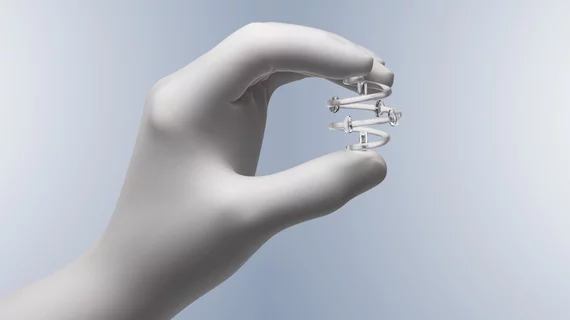Hologic breast care devices could cause life-threatening complications, FDA warns
Certain Hologic breast care devices could cause serious complications, according to a warning from the U.S. Food and Drug Administration issued Tuesday.
The alert pertains to the BioZorb and BioZorb LP markers, implanted in soft tissue to indicate the site for radiation therapy or other medical procedures. In recent months, the FDA has received reports of adverse events including discomfort from feeling the marker in the breast, infection, pain, rash, fluid buildup and other complications.
There also is danger the devices could break through the skin of the nipple, move out of place, or fail to resorb in a patient’s body.
“The potential consequences of the device moving out of position from where it was implanted (migration) and breaking through the chest cavity and/or blood vessels are severe and potentially life-threatening should it occur,” according to a Feb. 27 FDA notice. “Migration of the device may also impact future targeting of radiation to the intended site.”
BioZorb is FDA cleared for the radiographic marking of soft tissue sites including the breast. It also is used to tag sites for future medical procedures, the FDA noted. However, the product is not approved for filling space in breast tissue or improving cosmetic outcomes after procedures.
The agency is urging radiation oncologists to monitor patients who have an implanted BioZorb marker for any signs of complications. Physicians also should discuss the potential risks of such tissue-marking devices, inform patients about their implantation, and report any problems to the federal government.
The FDA said it is working with Hologic to evaluate all adverse event data and address potential risks. The Marlborough, Massachusetts-based manufacturer a device safety notification about the concern and statement to the media on Wednesday.
"Patient and healthcare provider safety are our top priority and we are committed to providing timely information to our customers that allows them to make informed treatment decisions for their patients," the company said Feb. 28. "While we want to ensure that customers have the most up-to-date and accurate information, we have the utmost confidence in the benefits that the BioZorb marker provides to breast cancer patients and these benefits are supported by a robust body of clinical literature," it added later.
Editor's Note: This story has been updated to include a statement from Hologic.

